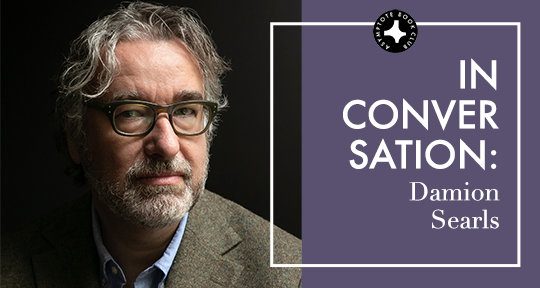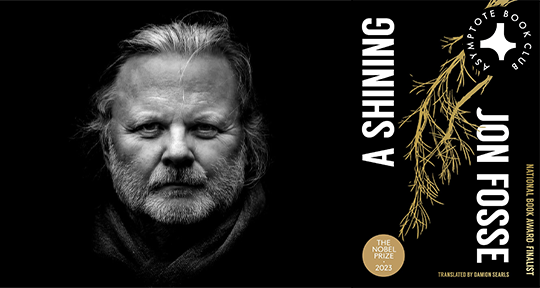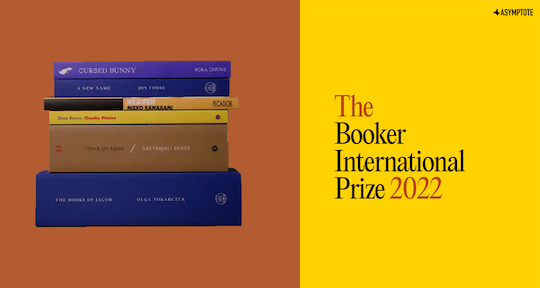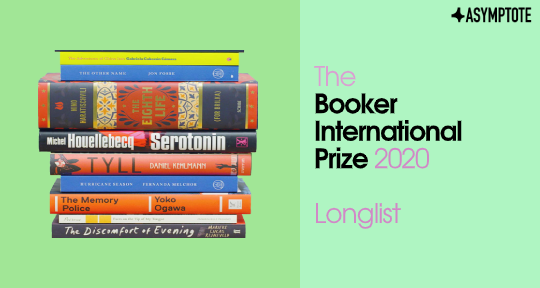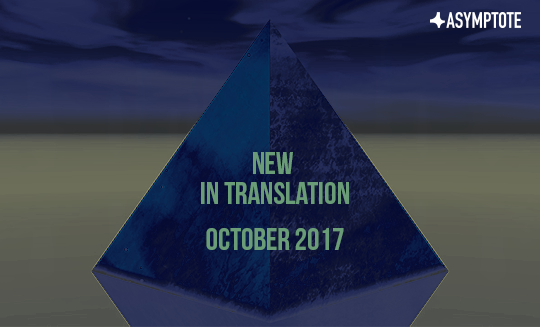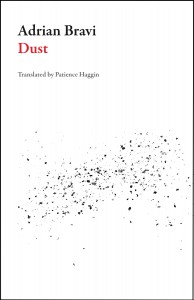Every month, the Asymptote Book Club shares a newly published, translated title with readers and subscribers. From Nobel laureates to electrifying debuts, this selection features some of the most powerful voices writing in any language, opening up an entry into the immense archives of wold literature. In this essay, we look back on the books of 2023 thus far.
Sign up for the Asymptote Book Club here and have our curated titles sent to your door!
Whenever a major event transpires, anywhere in the world, the instinct of many is to reach into the annals of writing—for explanation, ruminations, solace, transcriptions of history, glimmers of what’s to come, stories of people and their ordinary or extraordinary lives. . . On January 1 of this year, Croatia officially joined the Schengen Area, making it the twenty-seventh member to benefit from the region’s removal of border controls—and the search for Croatian books and literature went up 30%. During the surprising and intermittently absurd “Chinese balloon incident” in early February, searches for books on Chinese espionage went up a full 100%. Interest for Ukrainian literature stayed at a high amidst the ongoing conflict, and peaked when the International Criminal Court issued an arrest warrant against Vladimir Putin for committing war crimes regarding the illegal deportation of children. As a devastating civil war broke out in Sudan in mid-April, the world immediately sought out writing from and about the region, and when Niger’s government was overthrown in a military coup on July 26, searches for Nigerien books and authors also saw a significant surge. And as writers from Palestine and Israel continued, over the decades, to release texts around nation, land, exile, occupation, humanity, and violence both physical and psychological, we all watched in horror as the devastation grew almost unimaginably—and we looked for those books.
Books and the world they’re written in, books and the worlds they give us—sometimes reality would seem unbearable if literature were not there to decipher it, to give it heart. As the poet Adonis said, “My homeland is this spark this lightning in the darkness of the time remaining. . .” (translated by S.M. Toorawa); with language, such texts lend us that brightness, and we are rendered able to discover the many narratives and landscapes of our long, shadowy era.
In this year’s Book Club, we’ve thus far featured eleven titles: eleven authors, eleven countries, eleven languages, and eleven translators. Each brought their own entrancing energy of storytelling, whether taking history or the human psyche as material, building on myth or fearlessly experimental. There were titles that sought to give us a vivid portrait of a certain neighbourhood, a certain period. Others dove into the intricate channels of thinking to paint a picture of the mind. READ MORE…


